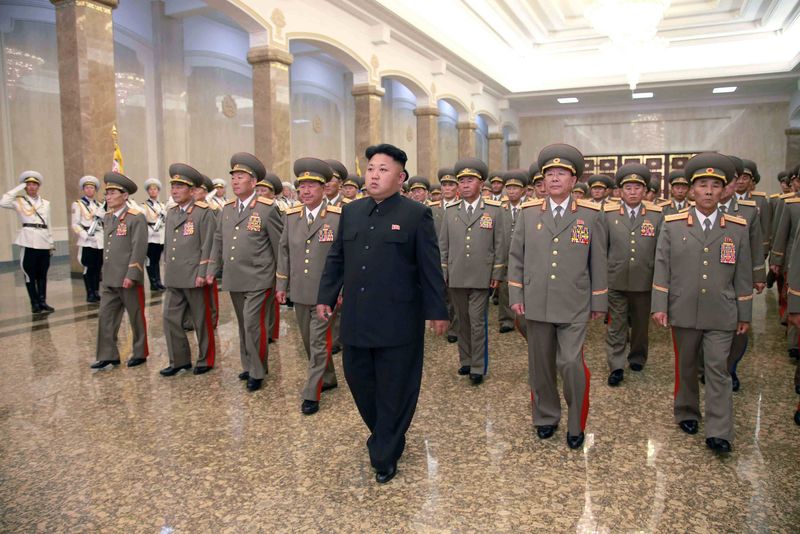(Bloomberg Opinion) -- It wouldn’t be hard for North Korea to become the next Vietnam, if only Kim Jong Un loosened up a bit.
North Korea today looks remarkably similar to the Southeast Asian nation in 1986, when its Communist neighbor undertook “Doi Moi” reforms to tiptoe toward capitalism. North Korea may have a head start, because it’s richer and more industrialized.
Vietnam is now a huge manufacturing hub, boasting an economy that’s six times larger than North Korea’s. Last year, it expanded 6.8 percent, the fastest pace in a decade, thanks in no small part to South Korean firms. Samsung (LON:0593xq) Electronics (KS:005930) Co. is Vietnam’s biggest foreign investor, accounting for around one quarter of its total export revenue. North Korea’s economy, by comparison, seems frozen in time.
South Korean companies would probably happily relocate, though. The wages they’d have to pay workers are significantly lower, based on salary data from North Korea’s Kaesong Industrial Complex, which was shut by the Park Geun-hye administration in 2016.
Crimped by sanctions, Kim is playing the diplomat, pledging an end to the Korean War and agreeing to meet with U.S. President Donald Trump, marking, in Trump’s words, a “very special moment for world peace.”
It could certainly be a defining moment for North Korea. Investment accounts for about 26 percent of Vietnam’s GDP. If Pyongyang could raise offshore inflows, which are practically zero, to even 20 percent of GDP, then its economy could grow at 5 percent, according to Morgan Stanley (NYSE:MS) estimates.
Investments from South Korea alone could fill that quota. At 20 percent of North Korea’s $31 billion of GDP in 2016 (the latest figures available), that’s about $6 billion. Samsung has plowed more than $17 billion into Vietnam over the years.
Vietnam still paints a prettier picture when it comes to demographics. Around 70 percent of the population is of working age, versus only 44 percent in North Korea. And North Korea’s working age population is expected to peak by 2020, compared with 2040 in Vietnam.
Combining the populations of the two Koreas would come to around 80 million. That’s big enough on its own to make the peninsula a self-sufficient production and consumption powerhouse.
Sell-side analysts often say that the reduced possibility of a war on the Korean peninsula could close the notorious Kospi discount. The risk premium attributed to South Korean assets is fading. Foreigners have purchased more than $17 billion of the nation’s bonds since January, betting an easing of tensions will usher in a less volatile won. Credit-default swaps insuring government debt against a default are near a five-year low.
But South Korean firms are still 30 percent cheaper than their peers in the region, even though chaebol have pulled up their corporate governance socks and improved their return on equity.
One can’t blame investors for being wary – Kim isn’t exactly a stabilizing influence. But, if he’s true to his word, fund managers could have a lot of catching up to do.
